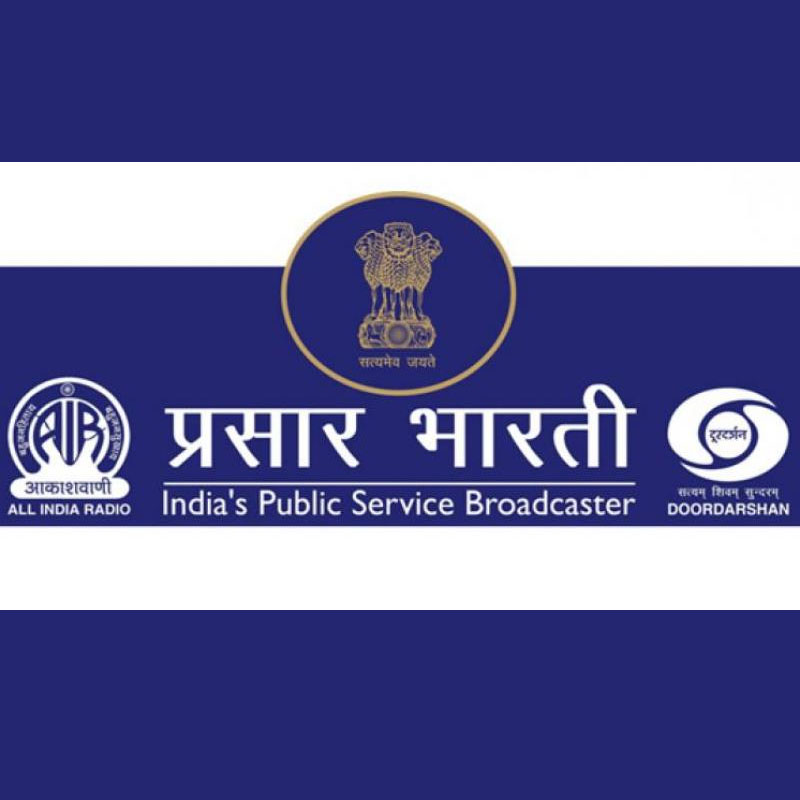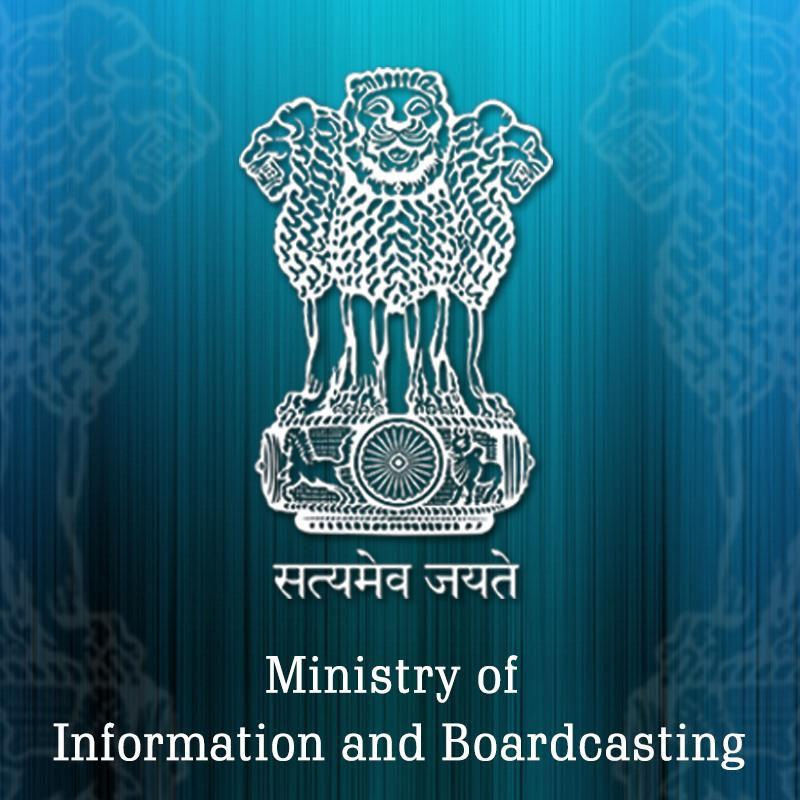I&B calls AAAI, ISA for meet on 4 Sept over TV ratings issue
NEW DELHI: The pressure on TAM Media Research, India‘s sole television ratings provider, is just not easing.
NEW DELHI: A coordination committee has been constituted in the Information and Broadcasting (I&B) Ministry to ensure convergence of advocacy, information and communication objectives and strategies of the ministry.
The committee will also remove bottlenecks in the conception and implementation of programmes, according to the Minister of State for I&B C M Jatua.
Sources told indiantelevision.com later that the primary aim of the committee was to ensure coordination amongst various media units under the ministry, primarily the Press Information Bureau, Directorate of Advertising and Visual Publicity, Directorate of Field Publicity, Song and Drama Division, all of which work to promote the flagship programmes of the government.
Other units include the Research, Reference, Training and Development wing, the Directorate of Film Festivals, and the Publications Division.

New Delhi: The government on Friday gave its approval to financial restructuring of Prasar Bharati, whereby the public broadcaster will from this year have to ensure its operating expenses other than salaries are met from revenue earnings.
The government will meet all the expenses of Prasar Bharati towards salary and salary-related expenses from its non-plan account for five years from 2012-13 to 2016-17.
These measures were a part of the proposal of the Information and Broadcasting (I&B) Ministry on financial restructuring of Prasar Bharati. The proposal was based on the recommendations of the Group of Ministers (GoM) on Prasar Bharati constituted under the chairmanship of the Home Minister, to examine various issues pertaining to the functioning of Prasar Bharati. The recommendations were given over a year earlier.
The government will waive accumulated interest on loan-in-perpetuity, interest on capital loan and penal interest thereon. Loan-in-perpetuity and capital loans provided to Prasar Bharati will be converted into grants-in-aid.
From now on, any plan capital support by the government to Prasar Bharati will be in the form of grants-in-aid and not in the form of loans.
The government has also agreed to waive accumulated arrears pertaining to spectrum charges up to 31 March 2011 amounting to Rs 13.49 billion.
The property and assets will be transferred at book value to Prasar Bharati according to the provisions of Section 16(a) of the Prasar Bharati Act 1990. Normal accounting principles will be followed to determine their future value.
The Director General of Audit, Central Revenues (DGACR) will continue to be the nodal auditor of Prasar Bharati and will be assisted by qualified commercial audit staff for the audit of the annual accounts.
Prasar Bharati has been grappling with financial and human resource/employee issues since its inception, which has adversely affected its functioning as an autonomous organisation. In view of the problems being faced by the public broadcaster, the GoM was constituted on 7 March 2006. The GoM was again reconstituted on 21 February 2011 which considered Prasar Bharati‘s future revenue earning potential given its public service broadcasting mandate, and made a number of recommendations for making it financially viable and sustainable.

NEW DELHI: A Parliamentary Committee has strongly criticised the Information and Broadcasting (I&B) Ministry for never having ‘bothered‘ to monitor the implementation of the Cable Television Networks (Regulation) Act 1995, a central legislation.
In a report presented recently, the Parliamentary Standing Committee on Information Technology has also said the ministry ‘never attempted to know as to how the issue of transmission of anti-national content by various service providers is being addressed internationally‘.
It noted that no survey had ever been made to see the impact of implementation of the Act, and particularly the implementation of section 16 which provides the penalty for contravening any of the provisions of the Act.
The Committee said it "deplored the way the amending legislation has been brought without knowing the ground reality".
In a report after examining the Cable Television Networks (Regulation) (Second Amendment) aimed at checking telecast of illegal channels, the committee said that even though the I&B Secretary acknowledged that there are many technological issues which have strong technological implications for which there is a need for an expert body to advise and guide the ministry, it did not bother to consult the various stakeholders which include cable associations and broadcasters‘ associations.
The committee noted that several complaints had been received by the central government against cable operators showing illegal channels. The Intelligence Bureau had identified around 25 such channels and informed the government that the contents of these channels were not conducive to the security environment of the country and pose a potential threat to the peace and security of the country. There have also been instances of illegal carriage of terrestrial channels by cable operators in some border areas of the country.
The proposed amendment to the Cable Act seeks to check transmission of illegal channels by cable operators in spite of various measures taken within the ambit of the extant law to stop carriage of these illegal channels. The amendment aims to make the provisions more stringent and also to enhance the punishment, in order to have the necessary deterrent effect.
The ministry informed the committee that it is easy for cable operators in border areas to take the feed of terrestrial channels of neighbouring countries which are not allowed to be shown in India. It said cable operators can pick illegal channels via broadband/internet or IPTV, mobile TV or video streaming and re-transmit them.
The committee said the ministry should have considered early digitisation of delivery of television channels in border areas to eliminate the possibility of carriage of illegal channels.

NEW DELHI: The utilisation of funds in the film sector by the Government in 2011-12 is Rs 1.25 billion as against the budget estimates of Rs 1.63 billion and revised estimates of Rs 1.39 billion.
This is despite the fact that the utilisation of funds had jumped above the budget and revised estimates in just one year ? 2010-11 ? when an estimated Rs 1.02 billion was spent as against the allocation of Rs 880 million and revised estimates of Rs 968.2 million.
Information and Broadcasting Ministry sources told indiantelevision.com that this was attributable to the coverage of the Commonwealth Games in October 2010.
The actual expenditure for the other years of the plan as against the budget estimate (BE) and revised estimates (RE) was: 2007-08 ? Rs 298.7 million (BE Rs 419.8 million and RE Rs 300 million); 2008-09 ? Rs 369.2 million (BE Rs 670 million and RE Rs 500.6 million); and 2009-10 ? Rs 628.4 million (BE Rs 600 million and RE Rs 668.4 million).
The proposed outlay for the 11th Plan rose from Rs 1.28 billion in 2007-08 to Rs 3.45 billion in 2011-12. The proposed outlay for the other years was: 2008-09 ? Rs 971.4 million; 2009-10 ? Rs 1.2 billion, and 2010-11 ? Rs 2.28 billion.
The revenue in the film sector for 2010-11 was Rs 462.1 million against a capital expenditure of Rs 224.7 million.
The total budget allocation for the film sector in the 11th Plan is Rs 4.20 billion out of a total Rs 36.86 billion, thus amounting to 11.4 per cent of the total budget allocation of the Information and Broadcasting Ministry.
Ministry sources admitted that Indian cinema had not attained as much acclaim in the past few decades as it had enjoyed up to the 1970s or even in the 1980s.
Taking note of this, the Parliamentary Standing Committee on Information Technology said ?a concerted effort should be made during the 12th Plan to ensure that promotion of Indian cinema abroad is carried out in a more structured and vociferous manner.?
Also read:
I&B should be more active in promoting Indian films overseas: Parliamentary Committee

NEW DELHI: Four schemes finalised during the Eleventh Plan by the Information and Broadcasting Ministry have now been shifted to the 12th Plan because of tardy progress in getting approvals of the Planning Commission.
Noting that the Ministry has failed to learn lessons from the past, the Parliamentary Standing Committee for Information Technology has exhorted the Ministry to look into this and ensure that the implementation of the schemes start during the first year itself or in the earlier part of the year so that the allocations earmarked for the year 2012-13 are utilised.
The schemes are setting up of a Global Film School; setting up of a National Centre of Excellence for Animation, Gaming and Special Effects; National Film Heritage Mission under Film Sector; and an International Channel under Doordarshan, which could not be formally approved during the long period of five years.
The plan for upgrading the Film and Television Institute of India into a Global Film School had been finalised with comprehensive rationalisation and restructuring but it will now be included in the umbrella scheme of Infrastructure Development programme relating to Film Sector in the 12th Plan.
The National Centre of Excellence for Animation, Gaming and Special Effects and the Doordarshan International channel are now new schemes under the 12th Plan, while the National Film Heritage Mission is part of the Twelfth Plan new scheme as a Special Mission.
When asked about timeline chalked out for early approval and implementation of these Schemes, the Ministry has replied that the approval of new schemes involves a four stage appraisal-cum-approval process: in-principle approval; preparation of Detailed Project Reports (DPRs) and preparation of EFC /SFC memos; appraisal of SFC / EFC memos; and approval by the competent authority.

 switch
switch
 switch
switch